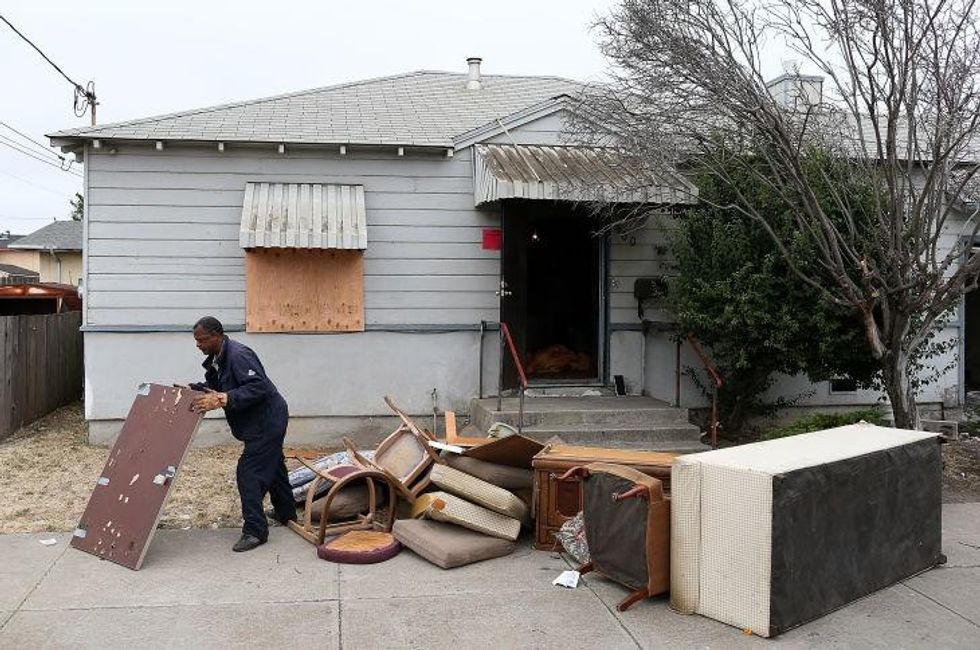As threatened,
Wall Street banks have now slammed the city of Richmond, California with a federal lawsuit in an attempt to block an innovative plan which would use local governmental authority of eminent domain to force banks not to foreclose on people's homes.
Housing justice advocates and government consultants say that banks are scared of a hopeful new strategy to curb the ongoing U.S. housing crisis, a solution they hope will spread beyond this poor and working class city of 100,000.
Filed by banking giants Wells Fargo & Co. and Deutsche Bank, and with the help of Fannie Mae and Freddie Mac, the suit followed a tizzy of public legal threats from big banks aimed at intimidating Richmond and other municipalities from pursuing such plans in the first place.
Richmond became the first California city last week to lay out the strategy of asking big bank lenders to sell underwater mortgage loans at a discount to the city (if the owner consents), and seize those homes through eminent domain if the banks refuse. Then, according to the plan, the city would refinance these homes for owners at their current value, not what is owed, thus reducing the mortgage burden for its citizens and helping to stabilize the housing market.
As previously reported by Common Dreams, the plan marks a new twist on eminent domain laws, which have been traditionally used by cities to displace poor and working class people and communities of color from their homes to make way for big money projects like stadiums and highways.
"If it happens and happens successfully, it will spread like a wildfire," Steven Gluckstern, chairman of Mortgage Resolution Partners which helped design the plan, told the Sacramento Bee. "That's one of the reasons the opposition is working so hard to prevent us from being successful."
"Sadly," he added, "the financial institutions that brought us this crisis are yet again part of the problem rather than part of the solution."
The Richmond initiative, which was won through sustained community organizing urging the government to address the severe housing crisis, appears to be gaining traction across the United States, with at least four other California municipalities considering the plan.
California housing justice organizers told Common Dreams they feel hopeful about this local initiative to use laws already on the books--that have historically been levied against poor people--to help residents stay in their homes. They insist that, in the face of the complete failure of the Obama administration to enact a solution to the housing crisis, local solutions such as this will become more and more important.
_____________________




